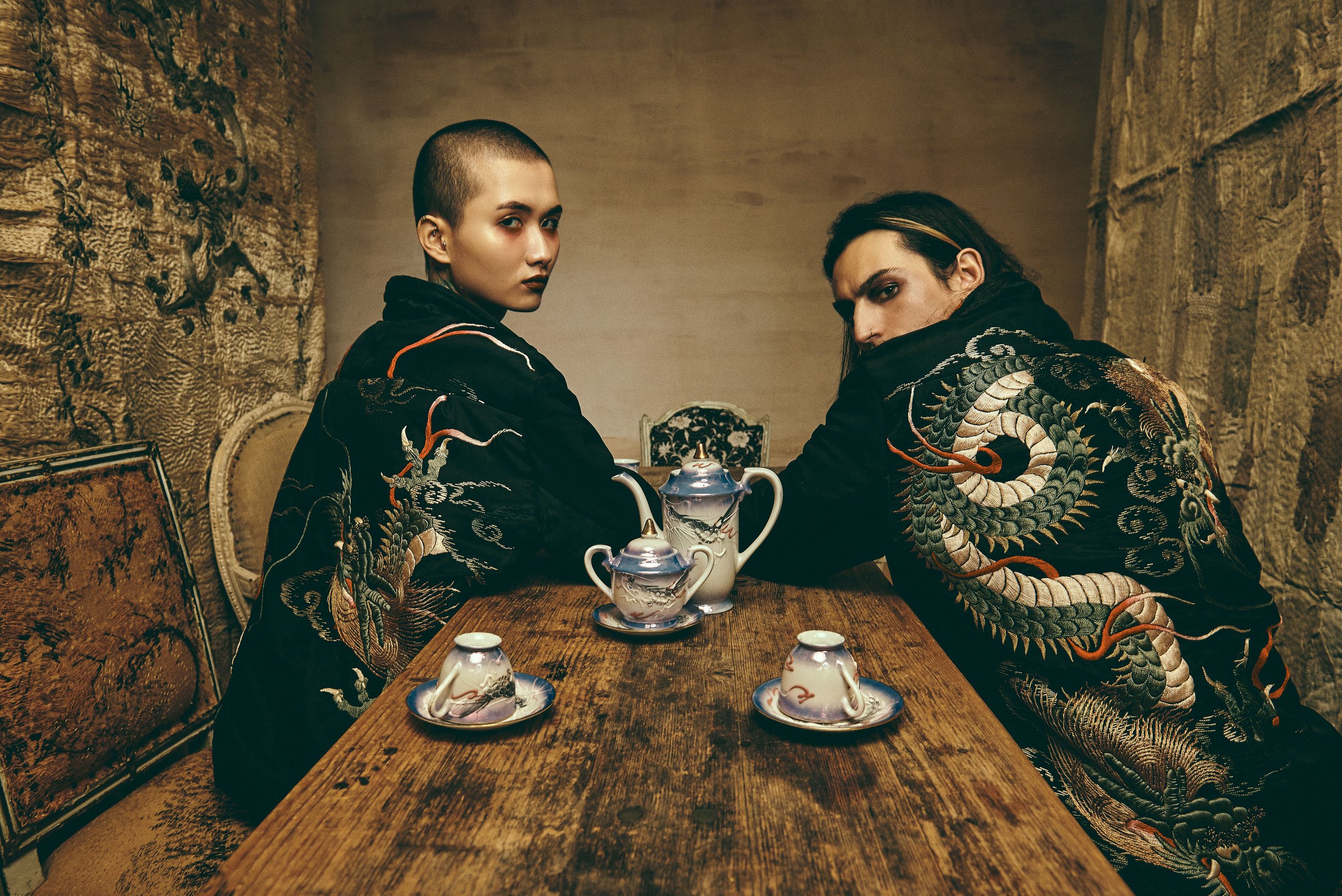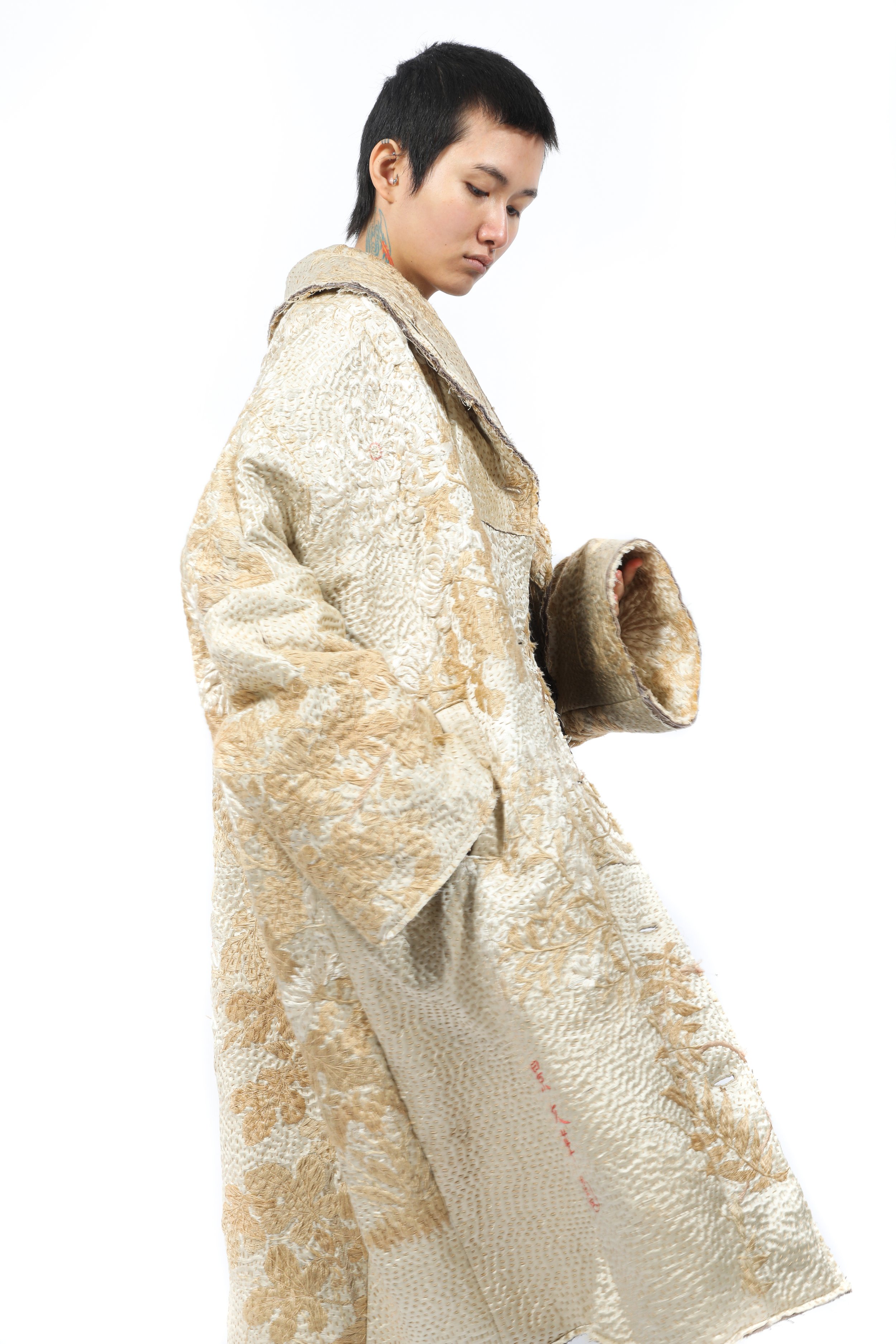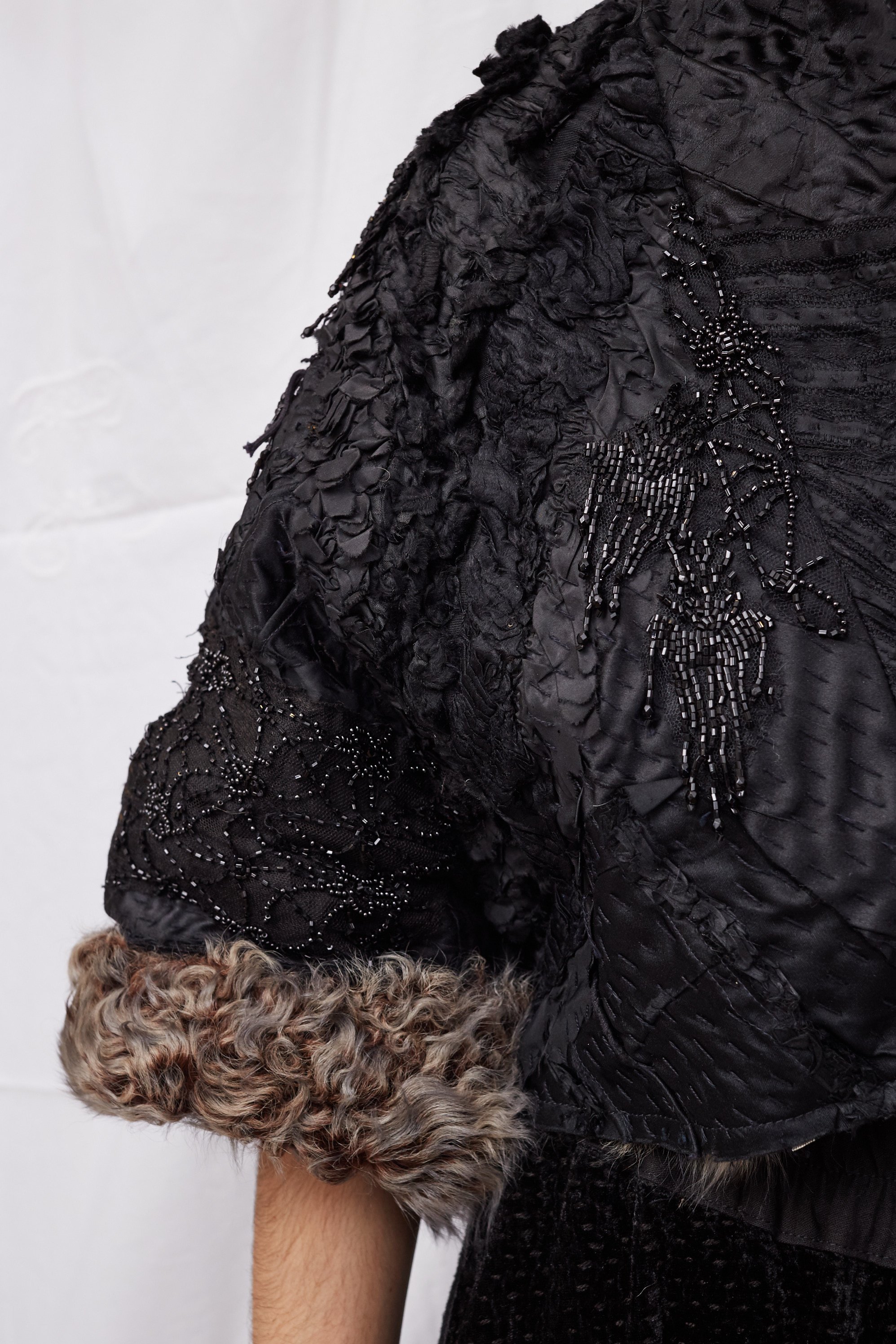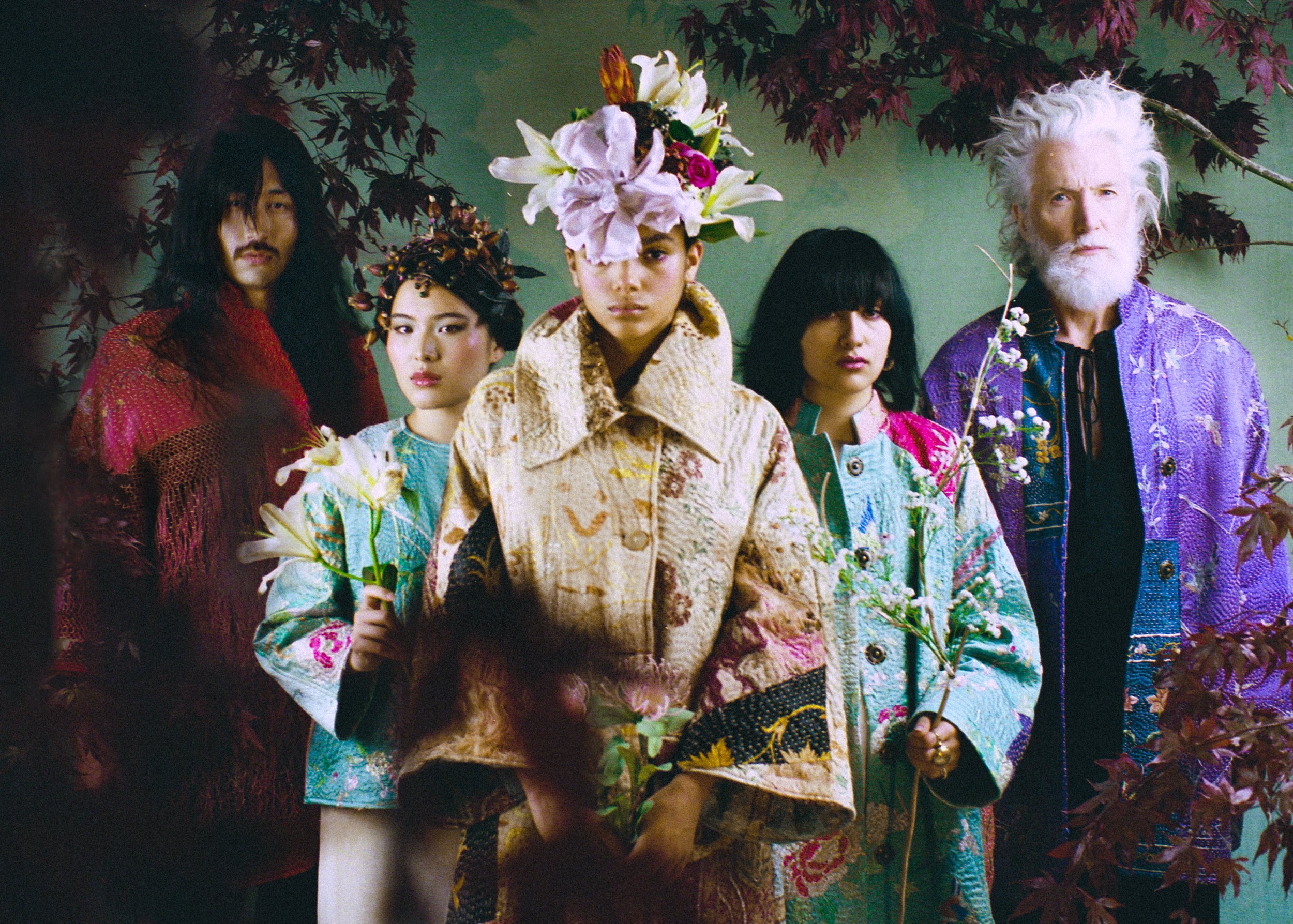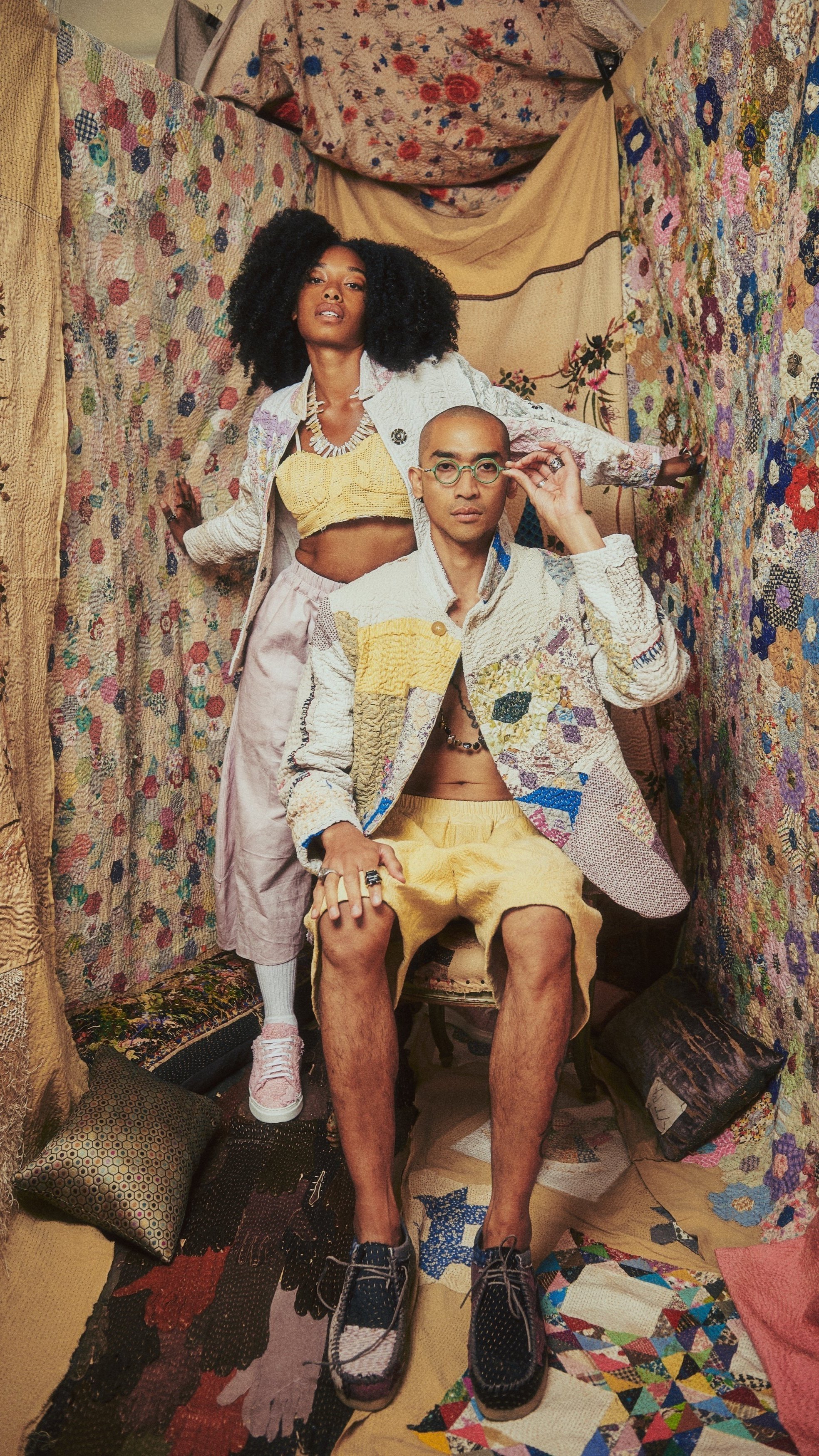By Walid
One of a kind wearable art
Rococo silk, belle epoque passementerie, 18th-century ecclesiastical embroideries, and hand-embroidered Spanish shawls are the raw materials master craftsman Walid Damirji uses in the creation of his one-of-a-kind designs. Revaluing precious and historic materials by refashioning them into luxury clothing.
Sitting amongst piles of vintage materials from around the world, wearing an embroidered shirt and sitting on a patchworked vintage chair, Walid looks at home in his environment, and the world he has constructed, made of fabrics piled high, hailing from every material culture imaginable.
By Walid is a British fashion label specializing in contemporary pieces for men and women made from exquisite upcycled antique textiles. Established in 2011, founder Walid Damirji’s creations extend beyond fashion into the home with covetable patched and pieced soft furnishings, furniture, and sculpted heads. His distinctive aesthetic is instantly recognizable, often featuring kantha style running stitches that reinforce the fragile and damaged textiles by attaching them to a stable backing material of wool, linen or khadi cotton, creating spirals, circles, waves, and geometries in the process, which he poetically names rain, butterfly and falling brick patterns. The more discoloured and damaged the textiles, the more Walid likes them, finding value and beauty in turning discarded materials into aspirational designs.with an idea.
Walid’s creations are truly the epitome of slow fashion, taking up to six months to clean, repair, back and stitch fragile historic textiles, all before the creation begins. He makes the relationship between creator and wearer explicit by creating an emotional attachment to the very threads of the fabric. The embedded stories and histories create a tangible connection between the past and the present. This is investment clothing, unique, authentic, and meaningful, flying in the face of fast fashion and transient trends, Walid’s clothing begs to be enjoyed and treasured for a lifetime, each wear adding new stories to the provenance of the cloth.
These are clothes that speak of craft and history – true luxury, taking many long months and the labour and skill of many hands to revive these heirloom textiles. Working with the likes of Italian 17th-century ecclesiastical damask and ottoman velvet, the textiles that are not only rare but time-consuming to bring back to life.
The British-Iraqi designer uses a zero-waste philosophy to construct his designs, ensuring every precious scrap of the heirloom textiles are utilized in making shirts, hats, bags, shoes, and fine art. Traveling the world like a textile anthropologist, he gathers exquisite material relics, each more precious than the next, assembling them into exquisite concoctions that traverse continents and histories.
The collection is not seasonal, and Walid prefers to work locally which inevitably raises the price of the end product. “I don’t feel I have to reinvent the wheel every season”. His very first jacket from fourteen years ago is still available for order. He recycles ideas constantly, with a recent return to a range of jackets developed from upcycled 19th century opera gloves, an idea he first pursued years prior, he works and reworks ideas again and again. There is inevitably an innate finiteness to working with materials in limited supply, allowing each design to be defined by the textiles themselves.
“History and ancient fabrics have always been an obsession for me. I like to take apart old clothing, tablecloths, alter pieces, and gloves and reimagine them.”
Walid dislikes retro dressing preferring to rework materials.
“I term my position within this company as a role to reinvent and give new purpose to unwanted castaways.”
He sees the beauty in each and every precious scrap, respecting the ancient craft of textile artisans by bringing them into the 21st century through their incorporation into new aspirational pieces.
“I don’t feel I have to reinvent the wheel every season”
The homeware line began a little before COVID lockdown and helped sustain them during that difficult period through an increased interest in luxury lifestyle products. The entire team worked from home, helping to sustain them as individuals as well as By Walid as a business, when so many others were losing their jobs and closing their businesses. The team now consists of between eight and ten people, with duties divided between material processes and admin depending upon skill sets.
Walid operates two separate workspaces the creative and the process driven, one where the fabrics are cleaned and repaired - a job that requires space, and the other where they are dyed, stitched, fixed, and finally recombined and created anew. Creation is a collaborative process with ideas bounced off the team. They operate like a cottage industry.
